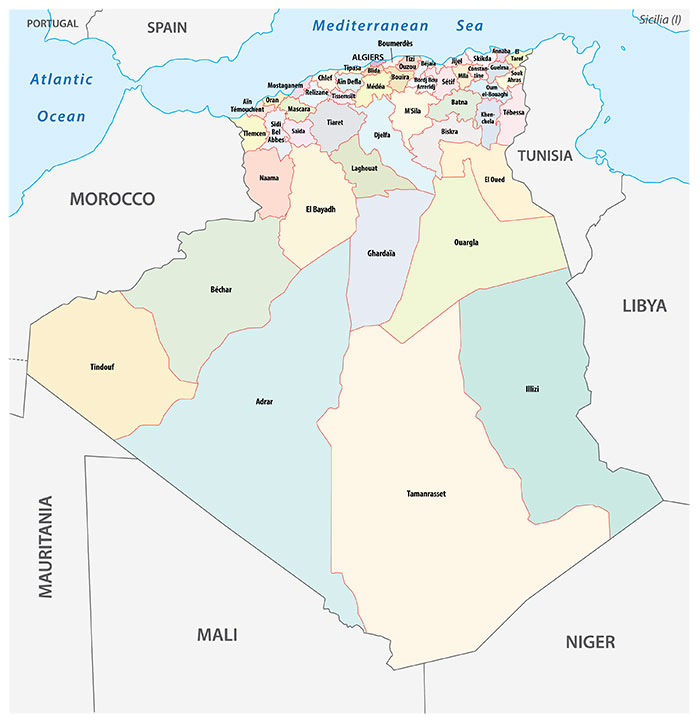Algeria Expresses Interest In Joining BRICS
Algeria looking to choose globalisation over US and EU policies
The Algerian President, Abdelmadjid Tebboune has stated the interest of Algeria to join the BRICS group, in an interview aired on the state-run television ENTV. Tebboune said that “there are economic conditions for joining the BRICS group, and I think Algeria meets a large proportion of these conditions.”
He had attended the High-level Dialogue on Global Development between the BRICS countries and emerging markets and developing countries in June.
Tebboune added that “joining the BRICS group would distance Algeria, which is considered a pioneer in Non-Aligned Movement, from the attraction of the two poles.” meaning that he wished to distance the country away from US and EU (especially French) politics and align with a more global bloc. Algeria has already taken steps to align its national development plan with China’s Belt & Road Initiative.
The BRICS group includes Brazil, Russia, India, China, and South Africa, representing more than 40% of the world’s population and about 23% of the global economy. That is set to rise to 50% by 2040, while several other nations have also stated interest to join the BRICS grouping, including nearby Morocco.
Algeria is a major energy producer with 12.2 billion barrels of proven oil reserves. The country exports 540,000 b/d of its total production of about 1.1 million b/d. All proven oil reserves are held onshore, though offshore exploration is in the early stages. In terms of gas, the country holds 159 trillion cubic feet (Tcf) of proven gas reserves, ranking 11th in the world and accounting for about 2% of the world’s total natural gas reserves of 6,923 Tcf. Algeria has proven reserves equivalent to 109.1 times its annual consumption.
Algeria covers an area of 2,381,741 square kilometres, making it the world’s tenth largest nation by area, and the largest nation in Africa. With a population of 44 million, Algeria is the ninth-most populous country in Africa and has access to the Mediterranean via its capital city and major ports of Algiers. Algeria now imports more products from China than it does from France (it was a French colony until 1962) and has increasing trade ties with Russia and India. It is a member of the African Continental Free Trade Agreement (AfCFTA) which is intended to boost African manufacturing and export facilities to global markets.

The prospect of some of the world’s smaller, yet significant countries choosing to align with an alliance such as BRICS anticipates a world restructuring where political interference from and trade with the United States and European Union is considered a burden rather than an opportunity, and one that is inclusive of Islam. The question that remains to be resolved is how the BRICS will be restructured to permit new members, and how trade agreements can be resolved between members – an issue that is in progress and could be enhanced by the continuing use of sanctions and the US dollar by the West as a trade weapon.
Related Reading
About Us
Chris Devonshire-Ellis is the Chairman of Dezan Shira & Associates. The firm assists British and Foreign Investment into Asia and has 28 offices throughout China, India, the ASEAN nations and Russia. For strategic and business intelligence concerning China’s Belt & Road Initiative please email silkroad@dezshira.com or visit us at www.dezshira.com





